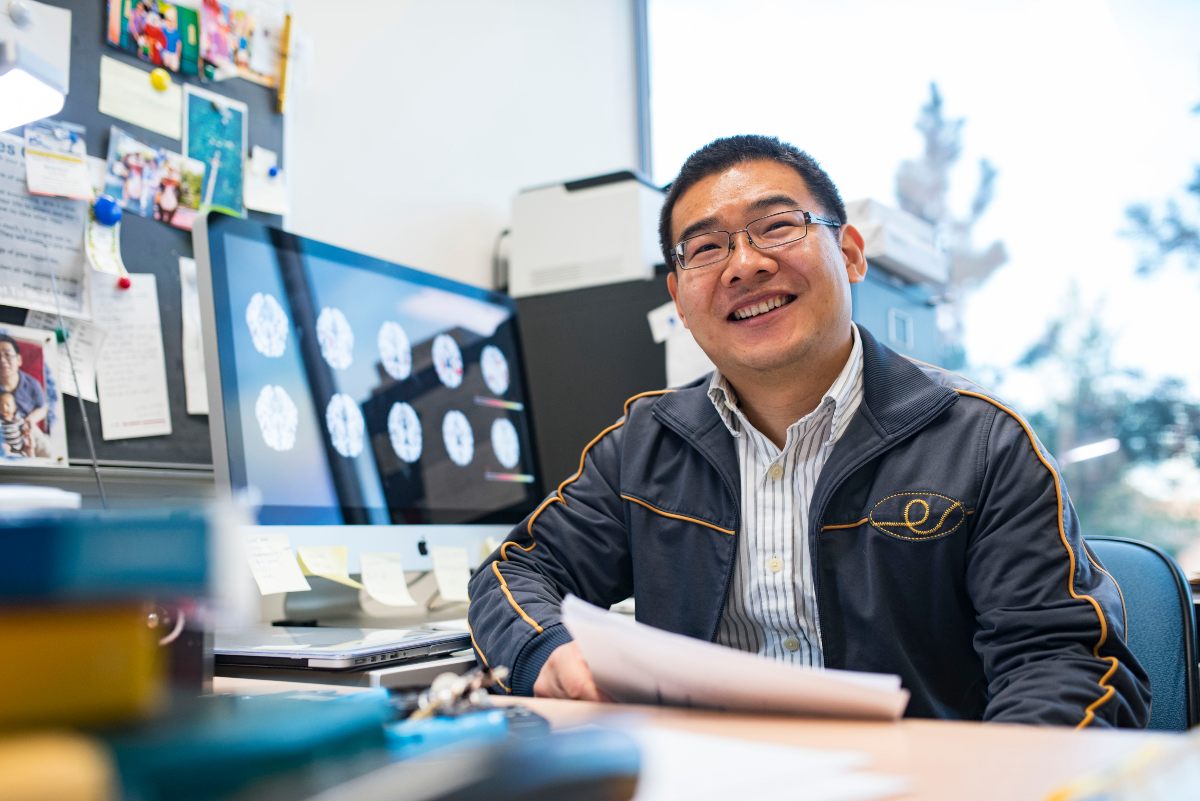
UAlberta researcher Linglong Kong is co-leading a project to battle ethnic and gender bias in the labour market using AI.
A new, international project is using the power of artificial intelligence (AI) in the battle against ethnic and gender bias in the labour market in areas such as job advertising, hiring, and networking.
Known as Project BIAS - Responsible AI for Labour Market Equality, this research is co-led by Linglong Kong at the University of Alberta as part of the Canada-UK Artificial Intelligence Initiative, and is a collaboration between computing statisticians and social scientists at UAlberta, Lancaster University, and University of Essex.
Kong’s UAlberta collaborators include Bei Jiang assistant professor in the Department of Mathematical and Statistical Sciences, Nicole Denier, assistant professor in the Department of Sociology in the Faculty of Arts, and Karen Hughes, professor in the Department of Sociology and Strategic Management and Organization, in the Alberta School of Business.
“We aim to develop ‘responsible’ AI that mitigates biases and inequalities, both within organizations and on digital job platforms,” said Kong, associate professor in the Faculty of Science Department of Mathematical and Statistical Sciences and UAlberta project lead.
Within organizations, AI algorithms are used in human resource processes such as screening resumes and selecting candidates. On digital networking platforms, such as LinkedIn, algorithms are used to screen and classify job advertisements, resumes, and profiles. The problem is that many of these algorithms were built on data that may be biased based on historical data about education, age, gender, and ethnicity, Kong explained.
“This data embodies organisational biases regarding gender and ethnicity in historical hiring decisions. The trained algorithms are then used to screen resumes and select candidates based on predictions of the kind of person who would make a good hire as well as for ongoing training of the algorithms, thus doubly reinforcing these biases.”
And that’s where Project BIAS comes in, with a focus on developing new AI algorithms that are sensitive to these gender and ethnic biases, and can mitigate them.
“We aim to shed new light on how the rise of algorithm-enabled platforms, such as job platforms, has the potential to both exacerbate and mitigate social inequalities,” said Kong. “We can use our findings to inform future-oriented industrial human resources, and digital regulations and policies for the fourth industrial revolution.”
A funding announcement on February 24 promised approximately $5M Canadian dollars and £5M British pounds over three years, to fund 10 interdisciplinary, international AI research teams under theCanada-UK Artificial Intelligence Initiative. Project BIAS is one of three projects funded at the University of Alberta, including: “Using AI-Enhanced Social Robots to Improve Children’s Healthcare Experiences,” led by Samina Ali, medical researcher and pediatric emergency physician and “Leveraging the impact of diversity in neurodevelopmental disability by integrating machine learning in personalized interventions,” led by Francois Bolduc, pediatric neurologist, both in the Faculty of Medicine & Dentistry.
Learn more about the world-class artificial intelligence research being conducted at the University of Alberta on the Faculty of Science AI hub, and find out how our students and researchers are advancing the field on the global stage.